Read on.
[for escape, for engagement, for solace]
[first published November 6, 2024]
Here are six great books, if you’re looking for something to read today.
Up the Down Staircase, by Bel Kaufman, is probably the first grown-up book I ever read, at age ten or so (unless perhaps it was Walter Lord’s A Night to Remember, the beginning of my Titanic obsession). Set in an underfunded, overcrowded urban high school, it’s the novel that taught me that books aren’t just about telling stories but about voice, and it contains scores of voices, in multiple formats, from letters and interoffice memos to homework assignments and suggestion box notes. I used to read it over and over and over when I was a younger person; I return to it now every couple of years, and its magic persists.
Kaufman, by the bye, was the granddaughter of the writer Sholem Aleichem, whom you likely know as the author of the Tevye the Milkman stories that were eventually adapted into Fiddler on the Roof.
I didn’t read Betty Smith’s A Tree Grows in Brooklyn till I was in my forties or so, and only after having seen Elia Kazan’s exquisite film adaptation.1 I’m sure I’d put it off for years and years because I thought it would be too YA for my elevated tastes, or too girly. And yet it’s (besides superbly well written) tough-minded and heartbreaking (without ever being mawkish). And it might possibly be the nonembarrassing inspiration you need right now.
Possibly you’ve read my friend Rachel Joyce’s The Unlikely Pilgrimage of Harold Fry. Her novel Perfect was a bigger deal in England than it was in the United States, but it remains my favorite of Rachel’s novels (so far), and not just because I got to copyedit it. I can’t really tell you too much (or anything, really) about its contents for fear of spoiling its twists and turns, so perhaps just take my word that it’s a great adventure. Have I ever steered you wrong?
Another novel by another friend, Stefan Merrill Block’s The Story of Forgetting. I never understood why this one didn’t find a much wider readership than it did, as it’s truly one of those Great American Novels you hear about from time to time. Again, it’s another take-my-word book. So take my word.
And of course the book I never stop recommending (and never stop talking about and never stop rereading), Ann Wroe’s Pontius Pilate, a dazzling work of speculative nonfiction and one of the greatest books I worked on in my Random House years. You can read a wee sample of it (plus a fun related story, if I say so myself) right here.
And, OK, just one more.
I bought a copy of In Bed We Cry out of a dollar rack outside a used book shop in Maine simply because I was amused to learn that Ilka Chase, the actress possibly best known as Bette Davis’s sturdy, wry sister-in-law in Now, Voyager, had written a novel.2

Plus, to be sure, that that novel is called In Bed We Cry; what a title.
My copy sat unread on a shelf for a few years, more objet than book, till I picked it up one afternoon out of that famous Idle Curiosity and found myself doing little else but devouring it for the next two or three days. It’s massive fun. It’s been out of print for yonks, but I’m sure you can find a copy online, or perhaps in a dollar rack outside a used book shop in Maine. (It’s not by any means Chase’s only book, I’ve since learned, but it’s the only one I’ve gotten around to reading so far.)
I hope you’re doing OK today, though I presume that you’re probably not.
I send my best.
Benjamin
The Usual Fine Print
Thank you for being here, thank you for following, thank you especially for subscribing. All of this substackery of mine is free and will remain that way, which means that if you have chosen to contribute to its and my upkeep,3 in larger or smaller ways, you are doing something you don’t have to do, which makes your generosity that much more resonant, and I am profoundly grateful. If you’re not yet part of that contributing crew and there’s a part of you that’s thinking “Who would have thought that apostrophes and commas could be so much fun?” and you choose to join the crew, I will be eternally (or at least monthly or annually) in your debt.
Benjamin
Here’s the great Joan Blondell as Aunt Sissy, with Ted Donaldson as Neeley Nolan and Peggy Ann Garner (absolutely exquisite) as Francie Nolan.
It took me a long time to fully appreciate James Dunn’s performance as the alcohol-sodden, doomed (sorry: spoiler!) Johnny Nolan, mostly because I thought (and still think) that he’s physically miscast as the staggering remains of the handsomest man in Brooklyn (late-career Tyrone Power more or less is Johnny Nolan), but on my umpteenth or so viewing the eloquent pain that Dunn brings to the role suddenly, for some reason, slammed me right in the soul. Feel free to skip ahead to letting his performance make you bawl your eyes out.
And let’s not, as they say, sleep on Dorothy McGuire’s performance as the steely Katie Nolan, an actress’s triumph of refusing to ask an audience for so much as an iota of a shred of an atom of sympathy or affection (and thus securing it, plus respect).






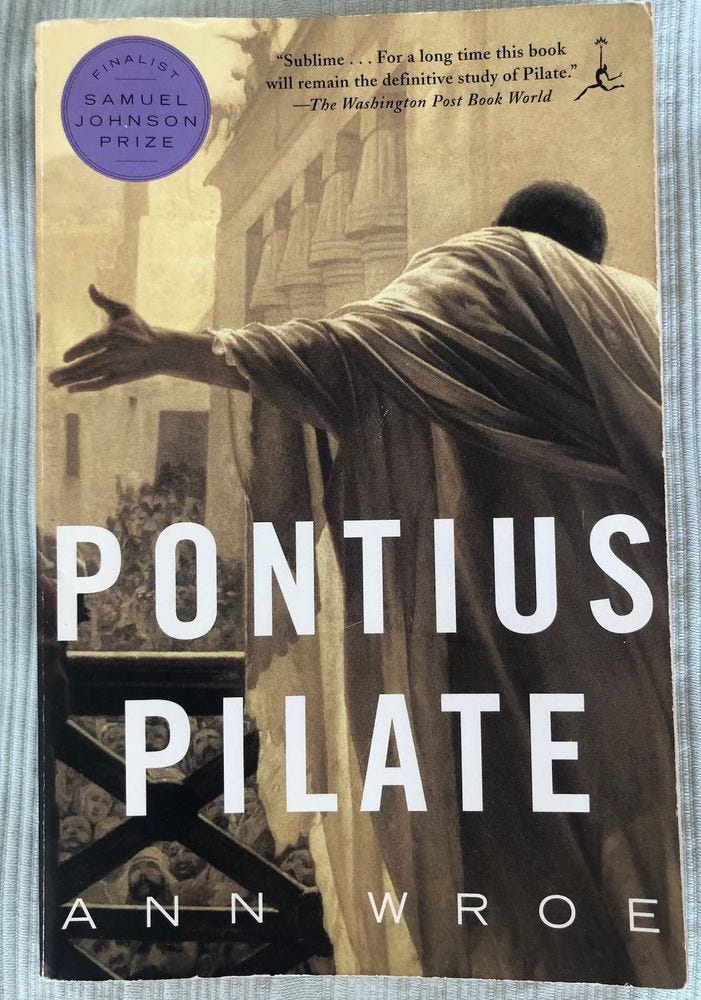
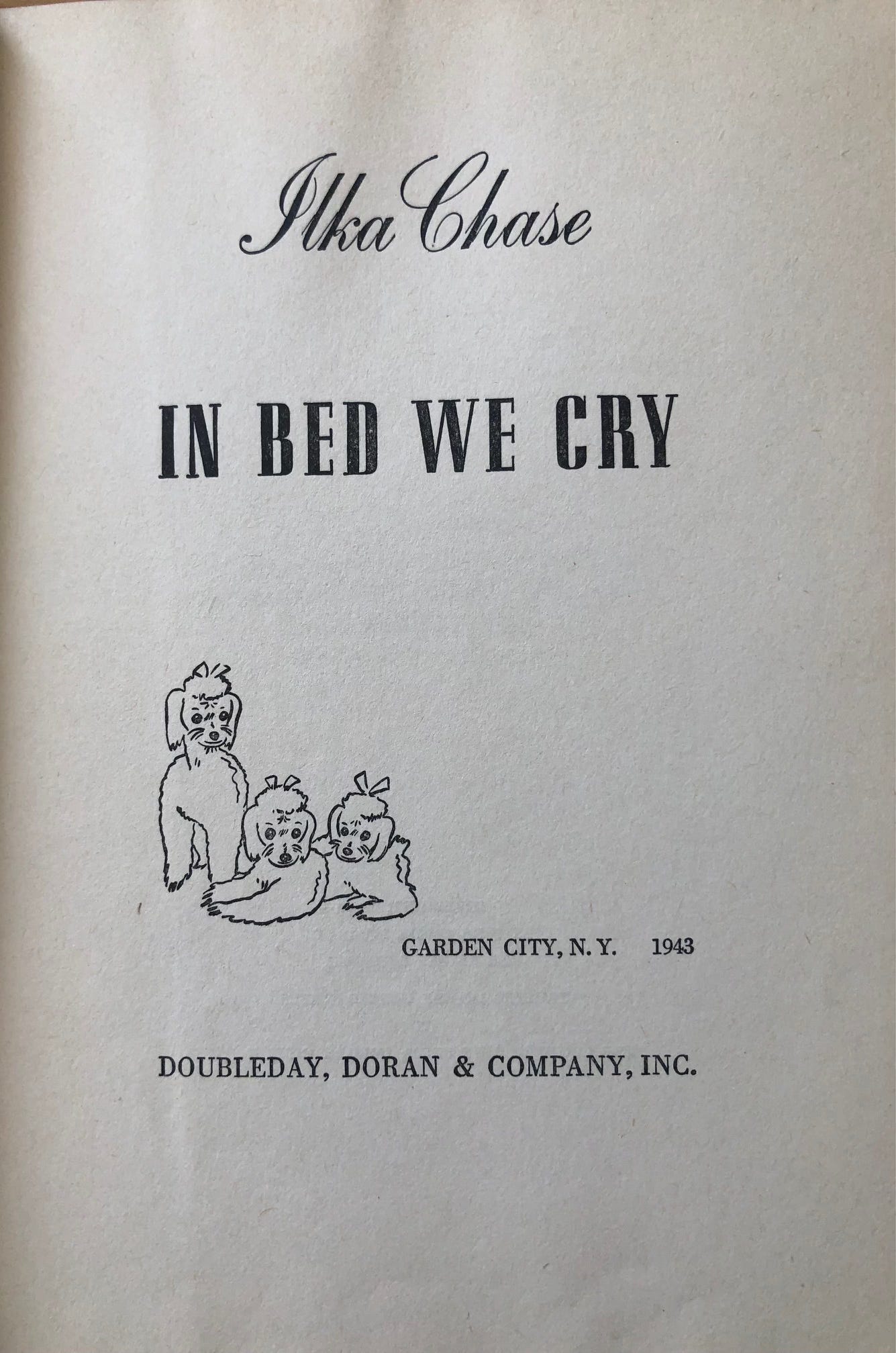
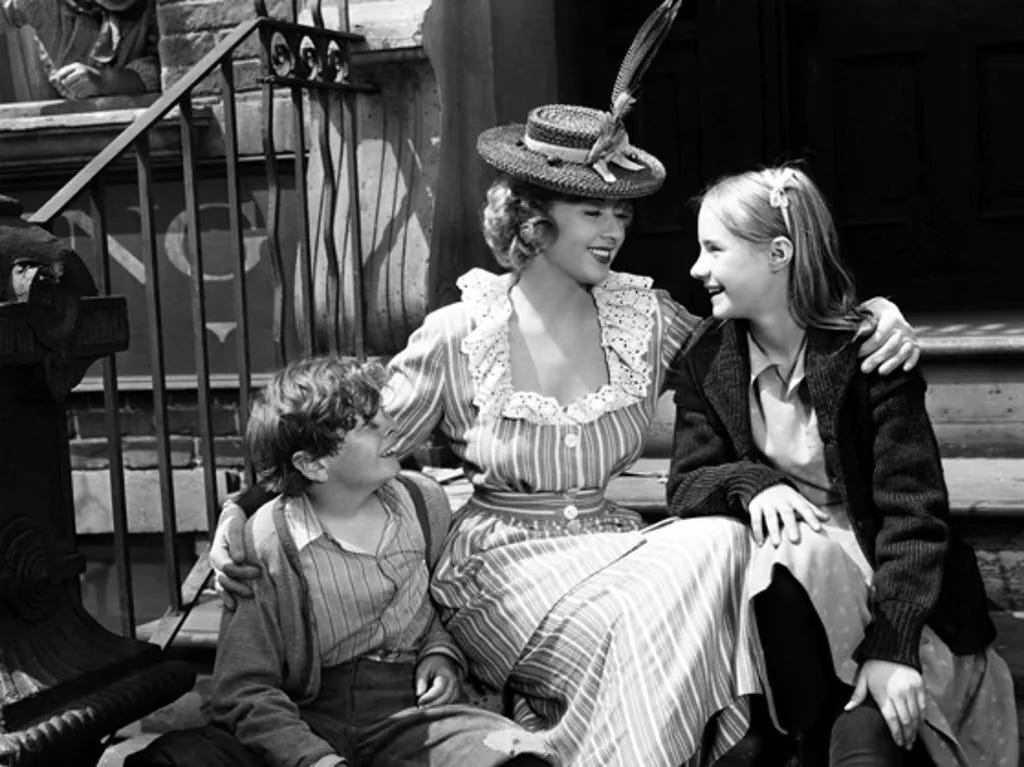
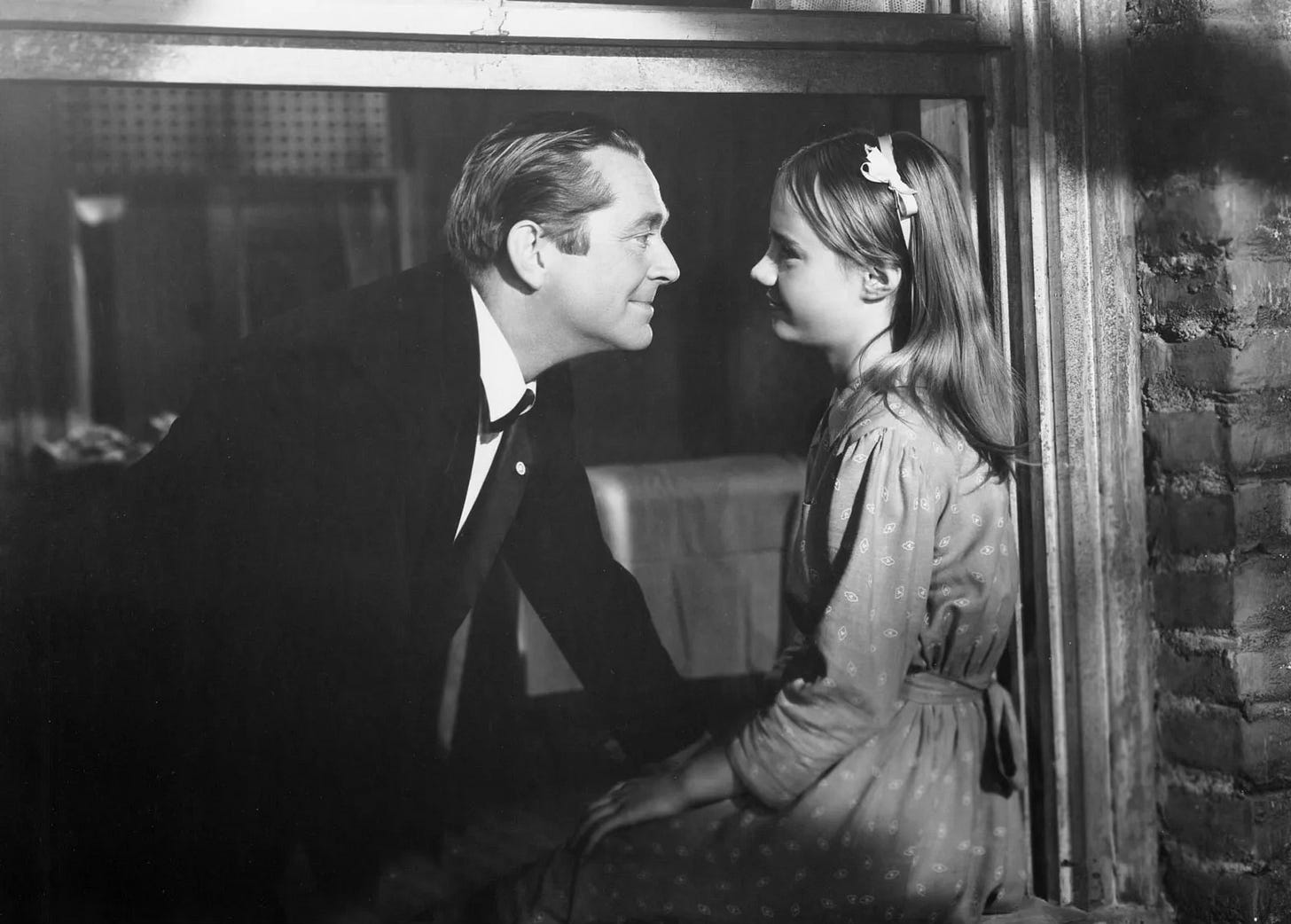


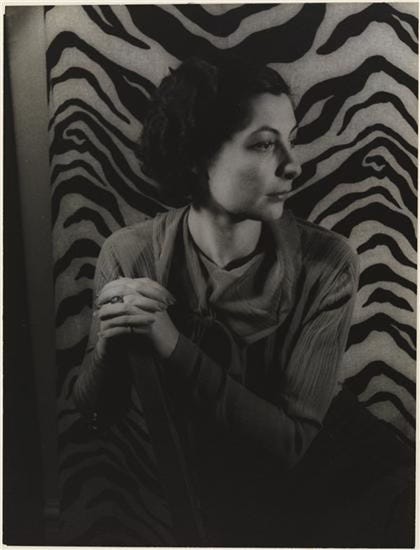

This post made me feel an iota less depressed today, and for that I thank you.
As always, thank you. These books will go on me list, although I too read up the down staircase about at age 10.
I'm not okay right now. But I will be one day.